LIVING OFF CAMPUS: Gentrification, Housing Rights, and Social Justice
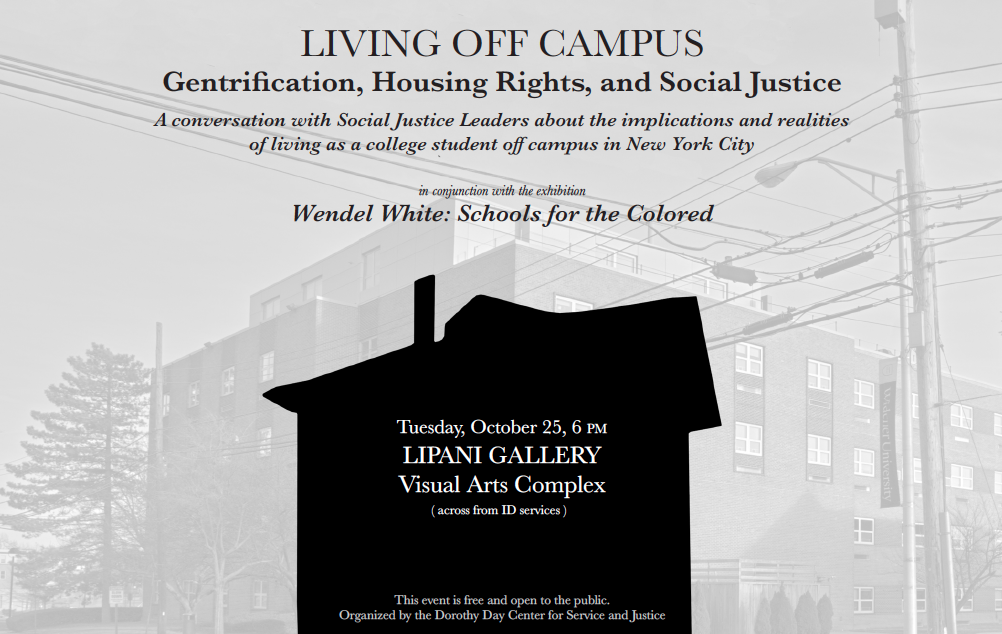

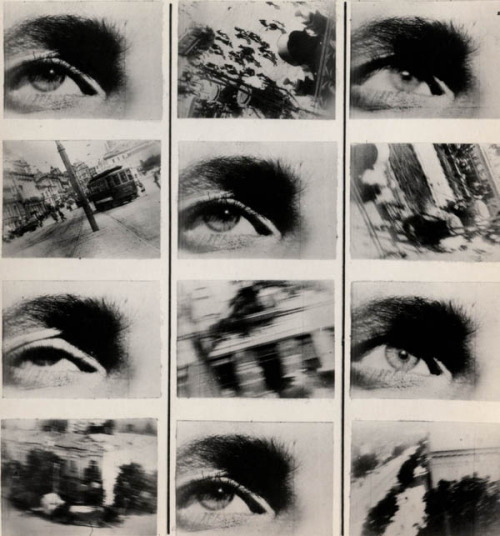
VART 1265 Film Video I Prof Street Mondays 11:30-2:15
VART 1265 Film Video I Prof McLaren Mondays 6-8:45 pm
VART 2265 Film Video II Prof McLaren Wednesdays 6-8:45 pm
VART 3268 Film Video Animation Prof Street Tuesdays 2:30-5:15
Questions? Contact Mark Street at MStreet@fordham.edu or Ross McLaren at Rossgmclaren@gmail.com
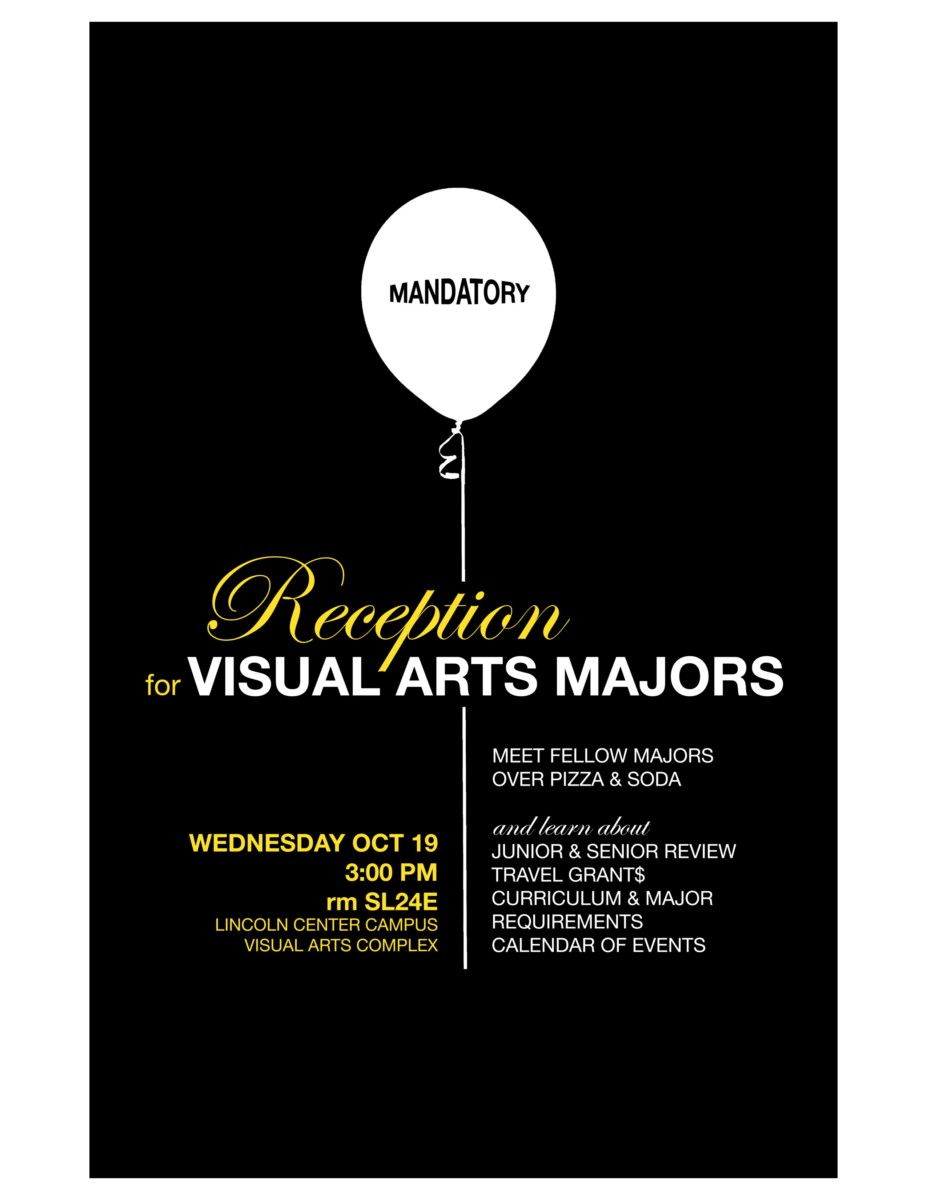
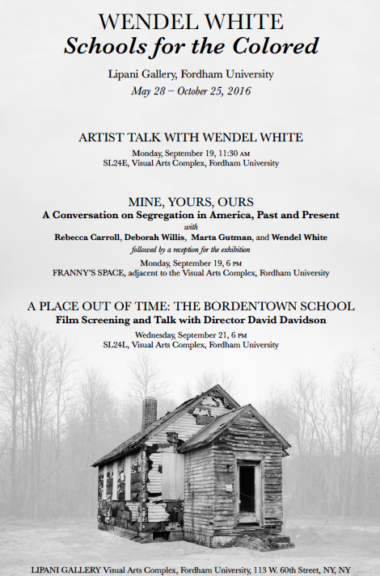
Artist Talk with Wendel White
Monday, September 19, 11:30 am
SL24E, Visual Arts Complex, Fordham University
Mine, Yours, Ours
A Conversation on Segregation in America, Past and Present with
Rebecca Carroll, Deborah Willis, Marta Gutman, and Wendel White
followed by a reception for the exhibition
Monday, September 19, 6 pm
Franny’s Space, adjacent to the Visual Arts Complex, Fordham University
A Place Out of Time: The Bordentown School
Film Screening and Talk with Director David Davidson
Wednesday, September 21, 6 pm
SL24L, Visual Arts Complex, Fordham University
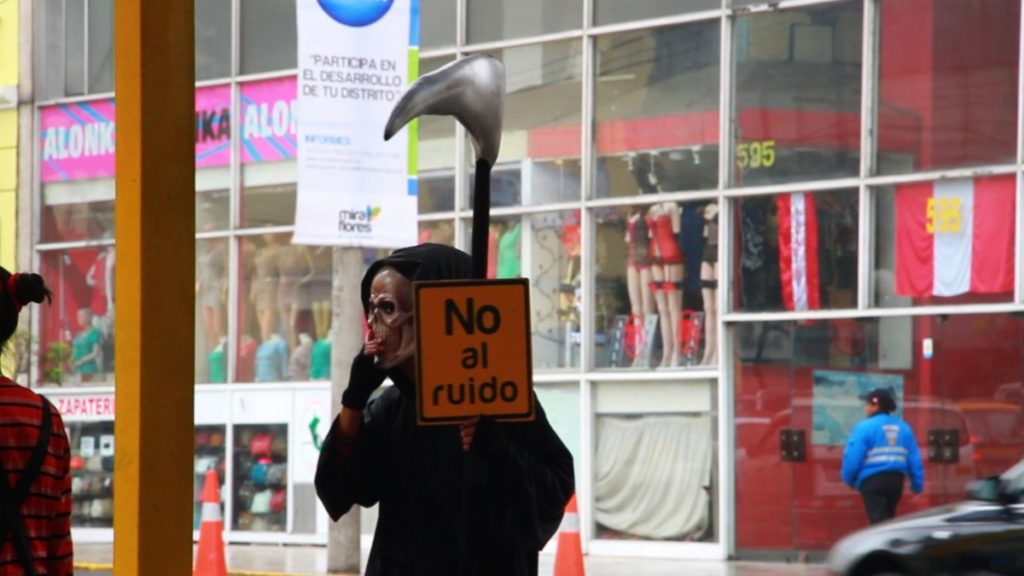
Last Halloween (my birthday, as it happens), I loaded up my Bolex to shoot some 16mm black-and-white images of a children’s costume parade in my Brooklyn neighborhood. I was thinking of Helen Levitt’s 1948 masterpiece, In the Street. Levitt (and her co-cinematographers James Agee and Janis Loeb) used a small camera to surreptitiously record images (mostly of children) in Spanish Harlem. The film is a poetic time capsule — observational vignettes that become more than the sum of their parts.
The Bolex looks pretty big these days compared to digital cameras, so I wasn’t hiding anything from anybody. As I stood on the sidewalk next to parents snapping cell phone photos, I encountered a fair amount of resistance. Several people asked me point blank what I was doing (which I thought was pretty obvious). They seemed unsatisfied with my admittedly vague response (“Shooting some footage, may turn it into a short documentary”).
Read the rest of the article at filmmakermagazine.com
Photo credit: Lima Limpia, 2015, Mark Street.
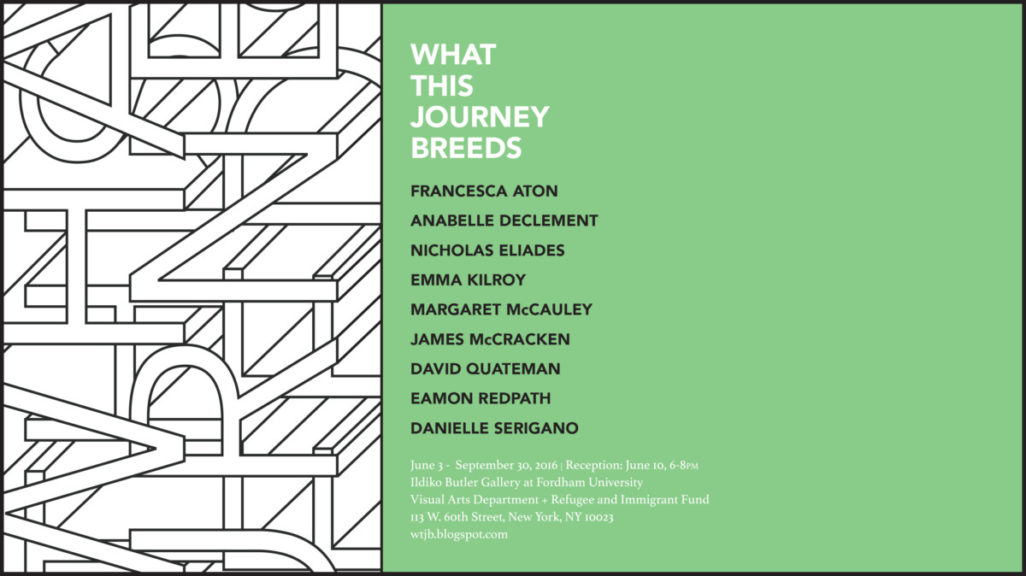
Ildiko Butler Gallery – Fordham University
Visual Arts Department + Refugee and Immigrant Fund
June 3 – September 30, 2016
Reception: June 10, 6-8PM
What This Journey Breeds, presented by the Visual Arts Department of Fordham University and the Refugee and Immigrant Fund (RIF), is an exhibition of multi-disciplinary work created by Visual Arts students with concentrations in Graphic Design, Painting & Drawing, Photography, Architecture, and Film & Video.
As its name suggests, What This Journey Breeds describes the culmination of this unique group of students’ formative engagement with RIF and the Brooklyn Grange. Over the course of the 2015-16 academic year, Fordham students have been working closely with RIF, participating from support group meetings, to interviews, and to hands-on volunteering in the gardens and at the University. In tandem to these experiences, they have been making work in response to their relationship with the asylum seekers, investigating themes of displacement, vulnerability, loss, and above all, hope. Most significantly, this journey revealed to its participants that atrocities can occur at every scale and knows no geographic, political, or cultural boundary.
Organized by Anibal Pella-Woo, Amie Cunat and Carleen Sheehan. Participating Artists: Francesca Aton, Anabelle Declement, Nicholas Eliades, Emma Kilroy, Margaret McCauley, James McCracken, David Quateman, Eamon Redpath, and Danielle Serigano.
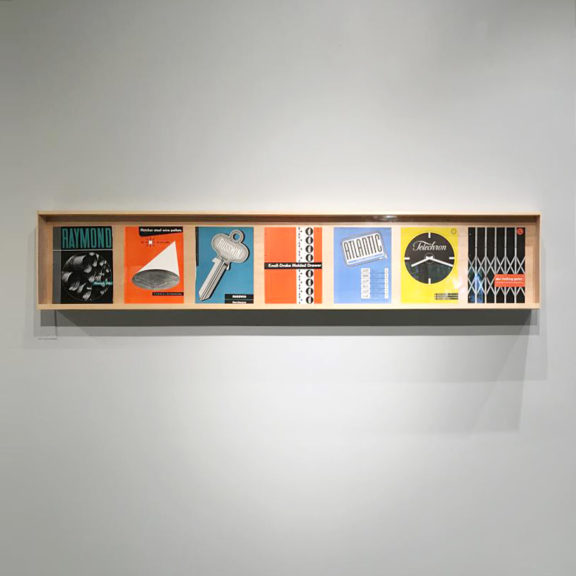
Ladislav Sutnar: Pioneer of Information Design, an exhibition that originated at Fordham’s Ildiko Butler Gallery is on view at Northeastern University’s 360 gallery:
Wed, June 22, 2016 – Sun, August 7, 2016
Gallery 360
Northeastern University, College of Arts, Media and Design
360 Huntington Ave., Boston, MA 02115
Monday through Friday, 11am – 7pm
Saturday 12pm – 5pm
Ladislav Sutnar was a master of making complex information simple. From 1941 to 1960, Sutnar, a Czechoslovakian immigrant who settled in New York City, served as the art director for F.W. Dodge Corporation’s Sweet Catalog Service. Sweet’s catalogs showcased plumbing, electrical, and building supplies that were marketed to the architecture and engineering trades. Sutnar and his team of writers and designers transformed the catalogs’ complicated product information into clear, concise, easy-to-understand images that were a precursor to the artistic discipline of information design. Sutnar used shapes, symbols, blocks of color, indexes, and other tools to help Sweet’s readers quickly and easily navigate each catalog page. This exhibit features more than 50 Sweet’s catalogs and other stunning artworks created by Sutnar. Curated by Patricia Belen and Greg D’Onofrio.
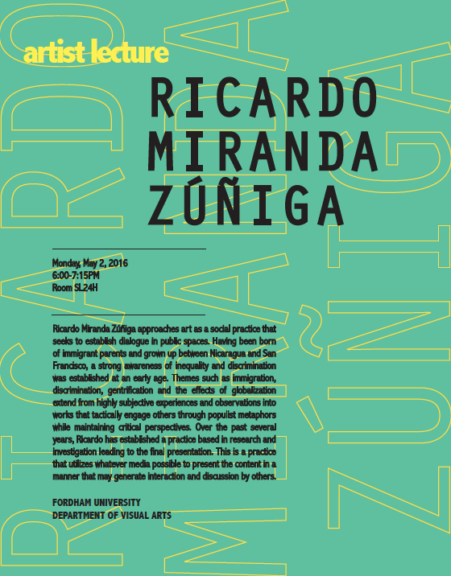
Monday May 2nd at 6:00 PM in room SL24H
Talk by Ricardo Miranda Zuñiga
Ricardo is a professor in the Masters of Fine Art in Integrated Media Arts program at Hunter College. Check out his website at www.ambriente.com. His work combines a DIY sensibility with new media and performance.
In conjunction with the exhibition “What This Journey Breeds”
June –September 2016 at the Ildiko Butler Gallery.
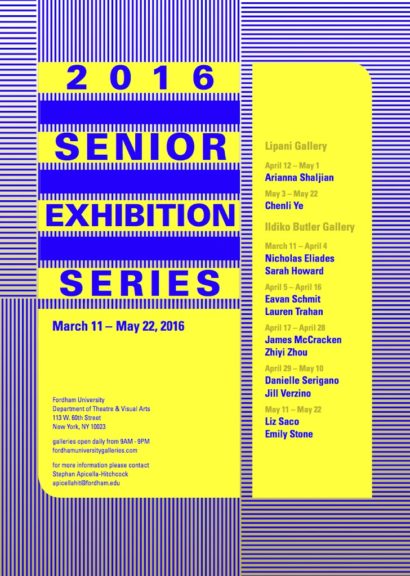
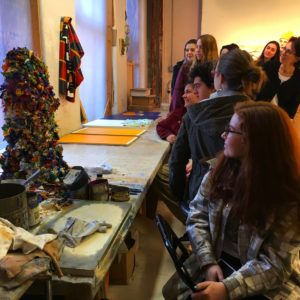
Join Prof. Ruble’s Painting I class for a studio visit with NY-based artist Leslie Wayne.
Leslie Wayne manipulates the medium of painting by approaching oil paint as a sculptural material, often times scraping, folding, cutting, and building up the surfaces. Evoking the experience of geology and natural phenomena, her work takes on three-dimensional forms with layers, varying textures, and colors. Wayne has been the recipient of numerous awards, including the Joan Mitchell Foundation Artist Grant, the New York Foundation for the Arts Fellowship, the Adolph and Esther Gottlieb Foundation Artists Grant, and the Pollock-Krasner Foundation Artist’s Grant. Her work has been shown nationally and internationally and is included in many museum collections. She is represented by Jack Shainman Gallery, where she has had five solo exhibitions.